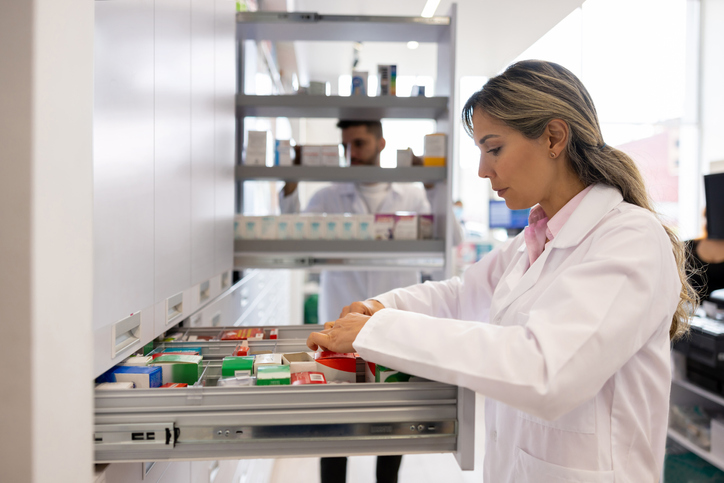What Does a Lead Technician Do in Hospital Pharmacy?

Hospital pharmacies are bustling hubs of activity, where pharmacists and pharmacy technicians work tirelessly to ensure that patients receive the correct medications and dosages. Among the pharmacy staff, lead pharmacy technicians hold a vital role, overseeing the day-to-day operations of the pharmacy and collaborating with other healthcare professionals to ensure that patients receive the best possible care. In this blog, we'll look closer at the role of a lead pharmacy technician in a hospital pharmacy and what a typical day might look like.
The day of a lead pharmacy technician usually begins with their arrival at the pharmacy. They'll review their daily tasks and responsibilities, including preparing medications, checking inventory and supplies, coordinating with other pharmacy staff members, and communicating with pharmacists and other healthcare professionals. They'll also ensure the pharmacy is ready to receive patients and fulfill daily medication orders.
One of the primary responsibilities of a lead pharmacy technician is to oversee medication dispensing. They'll work with automated dispensing systems to dispense medications to patients, ensuring that the correct medications and dosages are dispensed. They'll also be responsible for checking medication orders for accuracy, ensuring that medications are correctly labeled and that patients receive the correct medication.
In addition, lead pharmacy technicians collaborate with pharmacists and other healthcare professionals to provide the best possible care to patients. They'll assist with medication reconciliations and medication therapy management, which involves monitoring patients' medication use to ensure it is safe and effective. They'll also help manage patients' medication regimens, ensuring they receive the correct medications at the right time and in dosage. They'll also check for medication allergies and interactions, helping to prevent adverse reactions.
In addition, lead pharmacy technicians are often the first point of contact for patients with questions or concerns about their medications. They'll work with patients to explain their medications and how they should be taken and provide education on medication management and adherence.
Lead pharmacy technicians are also responsible for various administrative tasks in hospital pharmacy. They'll maintain accurate records of medication orders and dispensing, ensuring all documentation is complete and up-to-date. They'll also receive and place orders for medication and supplies, ensuring the pharmacy has everything it needs to provide the best possible care to patients.
In addition, lead pharmacy technicians are responsible for maintaining troubleshooting equipment. They'll ensure that automated dispensing systems are working correctly and that all other pharmacy equipment is functioning as it should be. If there are any issues with the equipment, they'll troubleshoot the problem and work with the appropriate professionals to resolve it as quickly as possible. If conflicts arise with patients or other healthcare professionals, they'll work to manage them and find solutions in the best interest of all parties involved.
In conclusion, the role of a lead pharmacy technician in a hospital pharmacy is vital to ensuring that patients receive the best possible care. They oversee medication dispensing, collaborate with other healthcare professionals to provide patient care, handle administrative tasks, and troubleshoot problems as they arise. A typical day in a lead pharmacy technician's life is busy, ensuring that patients receive the correct medications and dosages, the medication regimens are properly managed, and all administrative tasks are completed accurately and efficiently. Ultimately, the work of a lead pharmacy technician plays a crucial role in promoting patient safety and ensuring that patients receive the best possible care.






